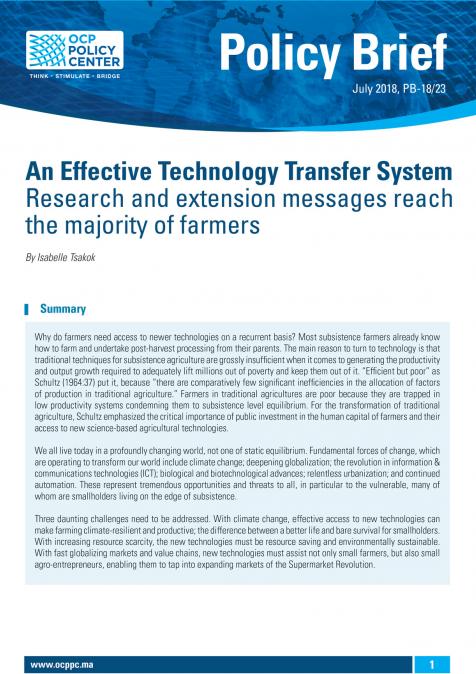Publications /
Policy Brief
Why do farmers need access to newer technologies on a recurrent basis? Most subsistence farmers already know how to farm and undertake post-harvest processing from their parents. The main reason to turn to technology is that traditional techniques for subsistence agriculture are grossly insufficient when it comes to generating the productivity and output growth required to adequately lift millions out of poverty and keep them out of it. “Efficient but poor” as Schultz (1964:37) put it, because “there are comparatively few significant inefficiencies in the allocation of factors of production in traditional agriculture.” Farmers in traditional agricultures are poor because they are trapped in low productivity systems condemning them to subsistence level equilibrium. For the transformation of traditional agriculture, Schultz emphasized the critical importance of public investment in the human capital of farmers and their access to new science-based agricultural technologies.
We all live today in a profoundly changing world, not one of static equilibrium. Fundamental forces of change, which are operating to transform our world include climate change; deepening globalization; the revolution in information & communications technologies (ICT); biological and biotechnological advances; relentless urbanization; and continued automation. These represent tremendous opportunities and threats to all, in particular to the vulnerable, many of whom are smallholders living on the edge of subsistence.
Three daunting challenges need to be addressed. With climate change, effective access to new technologies can make farming climate-resilient and productive; the difference between a better life and bare survival for smallholders. With increasing resource scarcity, the new technologies must be resource saving and environmentally sustainable. With fast globalizing markets and value chains, new technologies must assist not only small farmers, but also small agro-entrepreneurs, enabling them to tap into expanding markets of the Supermarket Revolution.



